Scalable solutions built on local impact
MATERIA’s vision is to grow into the impact-driven real estate investor & developer of reference for the Arab world and Africa. This is achieved through Impact Investments that follows our three core principles:
Responsibility
Economic Sustainability
MATERIA develops impactful project with an eye to their profitability and returns to guarantee private funding attractiveness.
Where the public sector is struggling to regenerate the ageing urban fabric, provide affordable housing and quality education, MATERIA aims to structurally change the status quo through scalable projects that are as profitable as they are impactful and thus allow Impact Investors to contribute to the sustainable development of cities.
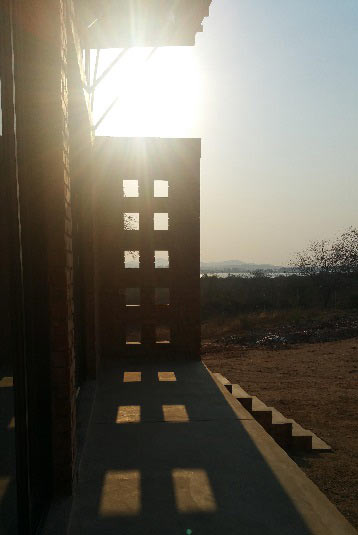
Local Development = global knowledge transfer + local materials and labour
MATERIA brings together the best minds from different disciplines to tackle local problems through the most efficient possible use of local resources.
Through initiatives such as the USI Workshops organised in 2016 and 2018, MATERIA fosters a bilateral exchange between some of world-leading practitioners and the local communities with the best knowledge of traditional techniques developed around resources available in any given context. Among others, MATERIA has applied key Incremental Construction principles inspired by African communities’ traditional approach to self-building, Passive Ventilation measures that help reducing temperatures within buildings that can do without A/C, and the development of quality firebricks in a region reach in fine clay and the necessary coal to cook it.
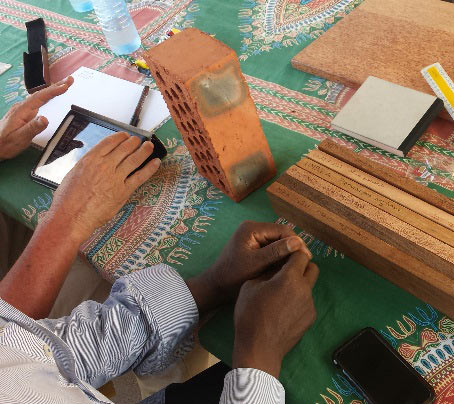
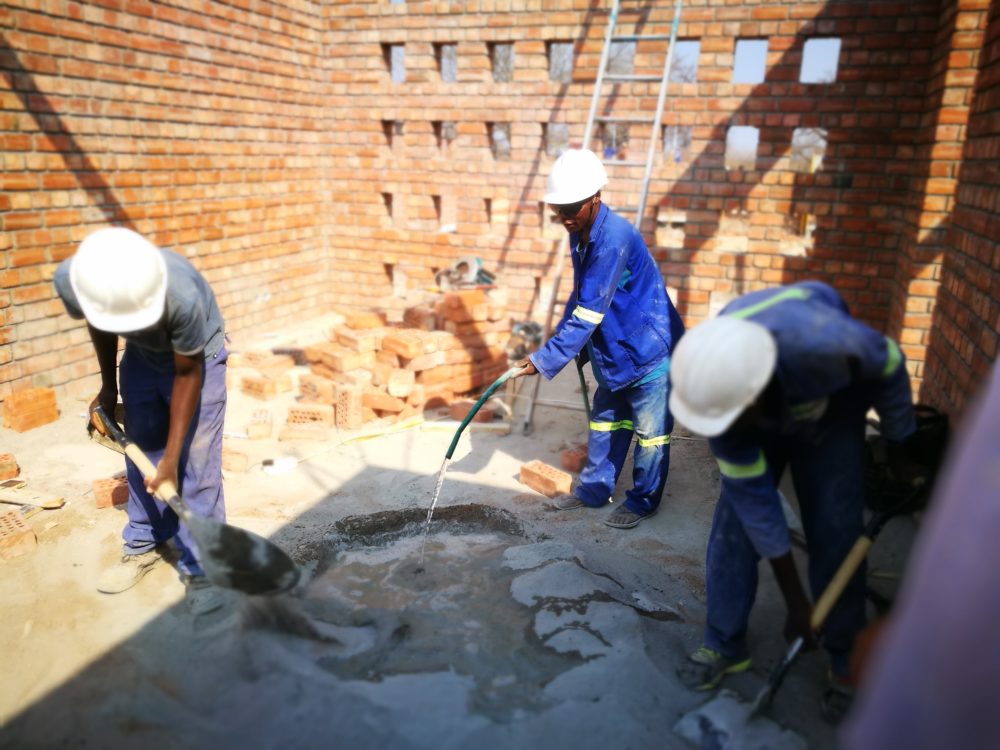
Innovation
Incremental Construction
MATERIA and Kere Architecture have envisaged a new approach to design and construction of affordable housing which is able to cater for different needs and budgets while keeping the initial investment as low as possible.
Modular housing blocks are delivered with all its structural components (roof, foundation, walls, bathroom, kitchen, etc.) and with the potential for future expansion in line with the desire and budget constraints of the buyer. The narrow central part of each building contains all infrastructural needs, such as the bathroom, the stairs and small corridors, passive air-conditioning and storage.
These integrated frameworks for Incremental Housing are not unlike traditional African settlements that grow and shrink based on the size and needs of the community. Different housing typologies can be built with the same modules in order to cater to different needs and price levels. Additionally, by offering a shell & core house to buyers, MATERIA allow people to access the house ownership ladder at a reduced budget.
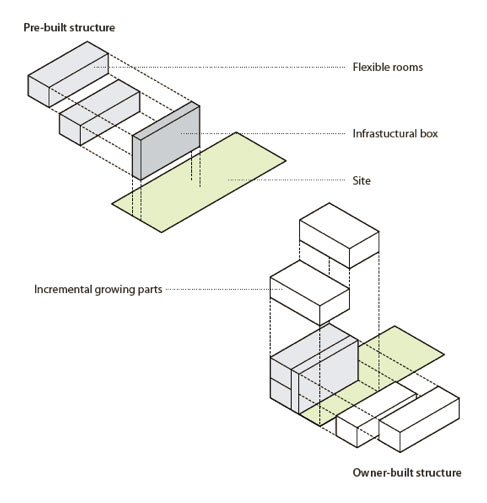
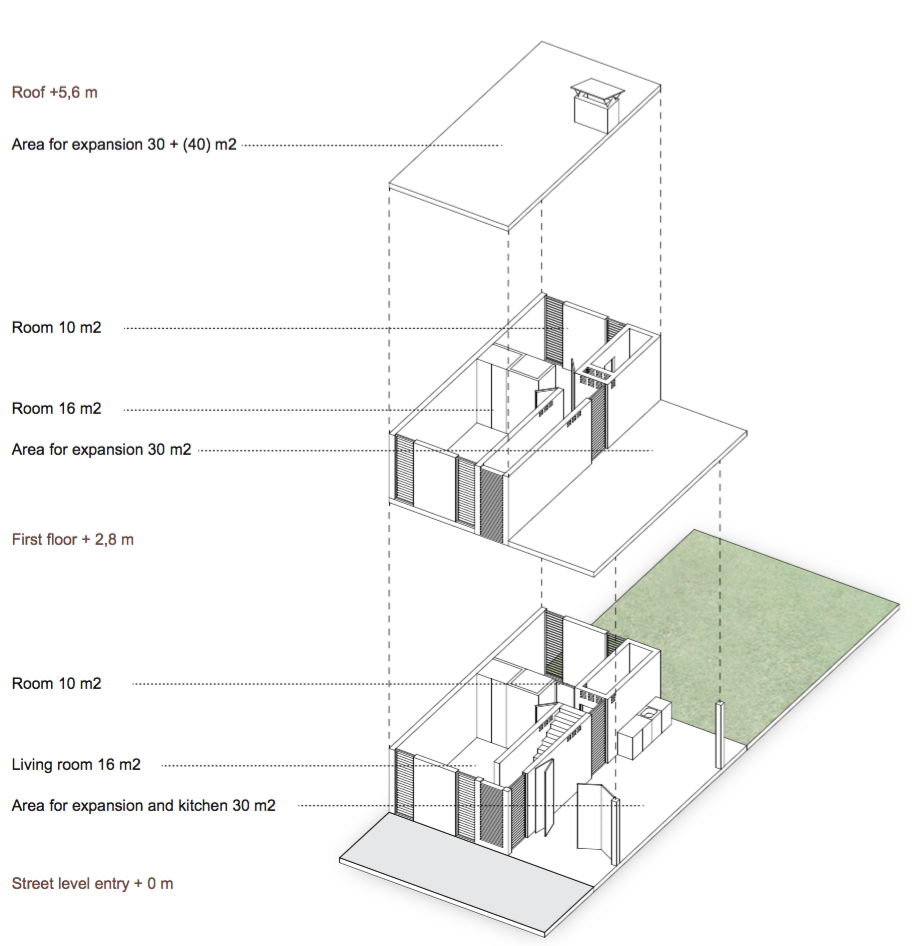
Passive Cooling & Ventilation
MATERIA fosters climatic innovation and adaption to local conditions as much as possible. Natural shading from landscape, infrastructure for water/energy collection and distribution, passive ventilation, and local building materials with high insulating quality are therefore utilised. Maximal cooling and ventilation is achieved through the separation of major living and sleeping quarters, courtyards, attractive masonry screens that draw in air cooled by the riverside and landscaping, and double-envelope ceilings that let warm air escape.
Long-term costs for residents are substantially reduced by minimizing building maintenance and artificial climate control. Passive ventilation is achieved through careful study of sun exposure, double-envelope roofing systems, vents opening in both ceiling and floors to encourage natural air flow and use of highly insulating materials such as firebricks or EPS.
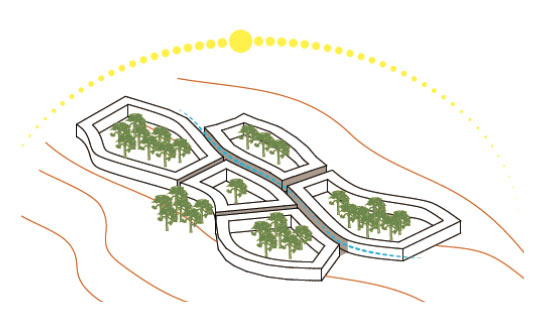
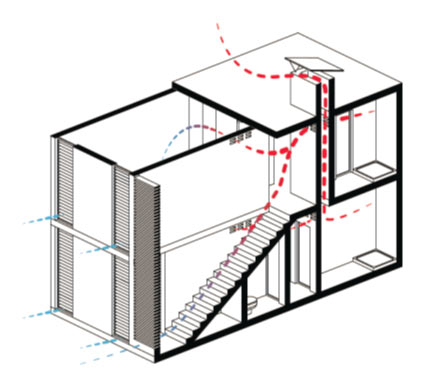
Foresight
Financial Sustainability
Flexible Urbanisation
In its projects MATERIA provides, in addition to the housing, a basic framework for Schooling & Social Infrastructure. Establishing a strong community core allows the community to grow in response to economy and demographic factors, which is the reverse concept of typical suburban developments that emphasize rigid structures of housing without a clear concept of community space or essential pedestrian functions to be filled over time.
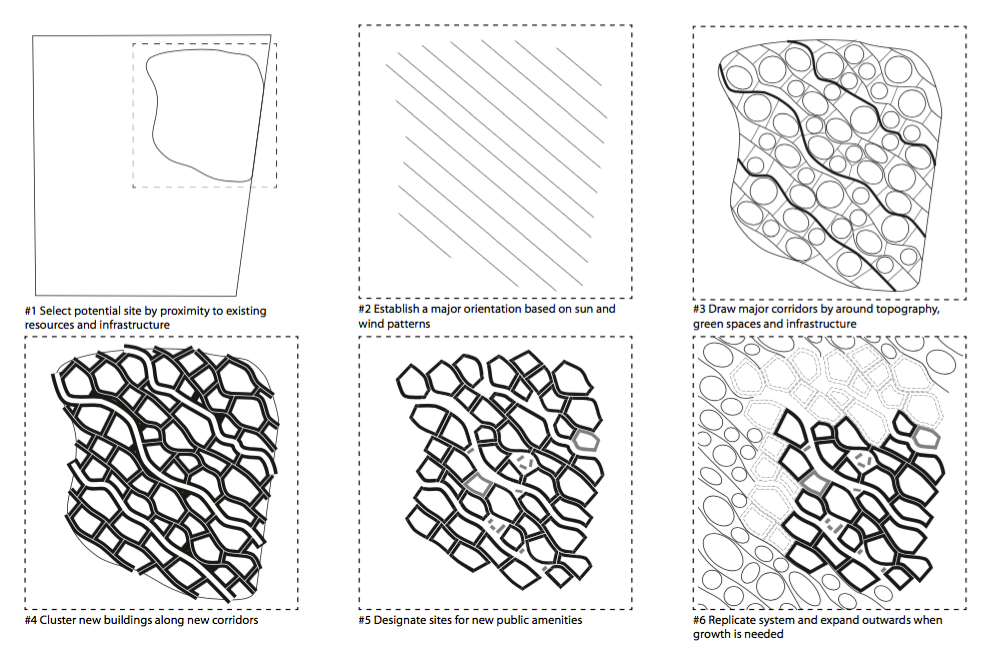
MATERIA’s approach to urban regeneration values density, walkability, variety and proximity of housing and infrastructure so that resources and public amenities can be shared in a more centralised way. This fosters a strong sense of community and inclusion, allowing residents and businesses to reducing overall maintenance, transport and energy expenses in the long-term. Common vital resources in the area including natural shading from landscape, infrastructure for water/energy collection and distribution, biogas from local water treatment plants, and locally available materials and technologies for construction are instead leveraged. Such urban plans also maximise and facilitate passive cooling and ventilation for all new constructions through strategic planning and positioning of buildings and double-envelope roofing systems.

